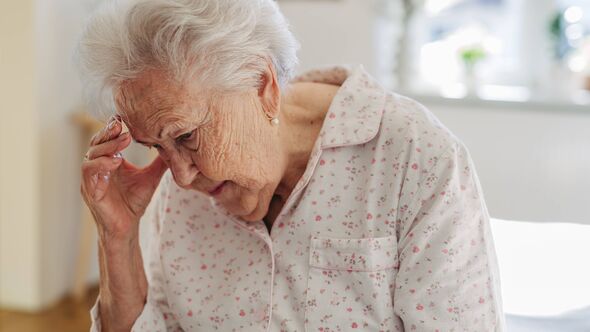Rare 3 types of dementia 'linked to genetics' - everything you need to know
Dr Kellyn Lee, a chartered psychologist, has dedicated her career to researching dementia, ageing and mental health.

An expert has shed light on the question of whether cognitive decline can be inherited, at a time when over six million Americans are living with dementia. Dr Kellyn Lee, a research fellow and chartered psychologist at the University of Southampton, has dedicated years to studying ageing, mental health, and dementia.
Earlier this week, she responded to a question from one of her followers regarding the possible connection between cognitive decline and family health. "So, somebody's asked me this question [about dementia]," Dr Lee said.
"'Does it have anything to do with what you've inherited from your parents? Like my dad has heart problems in his family, and my mum's side mostly Alzheimer's in her sisters. My mother got vascular dementia.'"
Responding to the concern, Dr Lee then continued: "The research doesn't show that sort of the more common types of dementia, like Alzheimer's and vascular dementia, there don't seem to be those hereditary links as there are with the rarer types of dementia.
"So, the rarer types of dementia, there are genetic links between those, but not necessarily with the most common types of dementia, such as Alzheimer's and vascular."
Dr Lee's views align with the Alzheimer's Society, which states that most dementia cases are not inherited, although certain gene mutations affect a small subset. This typically includes Huntington's disease, Familial Prion disease, and Familial Alzheimer's disease, often called young-onset dementia. Huntington's disease and Familial Prion disease have a 50/50 inheritance chance due to a 'single faulty dominant gene'.
READ MORE Doctor lays bare key theory on 'alien abductions' [HEALTH]
"The good news is that these kinds of dementia are very unusual," advice from Alzheimer's Society claims. "In general, the earlier a person develops Alzheimer's disease, the greater the chance that it is due to a faulty inherited gene.
"So in the really rare cases of a person developing Alzheimer's disease in their 30s and 40s, it's almost always because of a faulty gene." In more common cases of dementia, genes only play a small role among many other risk factors.
Indeed, an estimated 45% of dementia cases might be preventable by tackling 14 adjustable characteristics across various life stages. Additionally, researchers at Oxford University found that insufficient physical activity, alcohol consumption, and pollution exposure are among the factors that may increase the risk of dementia after analysing 40,000 brain scans last year.
Professor Gwenaëlle Douaud, who led the study, previously said: "We know that a constellation of brain regions degenerates earlier in ageing, and in this new study we have shown that these specific parts of the brain are most vulnerable to diabetes, traffic-related air pollution − increasingly a major player in dementia − and alcohol, of all the common risk factors for dementia.
"We have found that several variations in the genome influence this brain network, and they are implicated in cardiovascular deaths, schizophrenia, Alzheimer's and Parkinson's diseases, as well as with the two antigens of a little-known blood group, the elusive XG antigen system, which was an entirely new and unexpected finding."

READ MORE
Weekly activity that 'slows down' brain ageing and cuts dementia risk [DEMENTIA]
Research uncovers common condition could speed up cognitive aging by 10 years [AGEING]
Avoiding one beverage could help slash your risk of Alzheimer's and dementia [ALZHEIMER'S]
Earliest signs of dementia explained
Dementia includes a range of conditions linked to ongoing cognitive decline. Early symptoms typically consist of:
- Mood changes
- Difficulty concentrating
- Finding it hard to carry out familiar daily tasks, such as getting confused over the correct change when shopping
- Memory loss
- Struggling to follow a conversation or find the right word
- Being confused about time and place
If you or someone you care about is experiencing these symptoms, it's crucial to seek advice and support from a GP.
